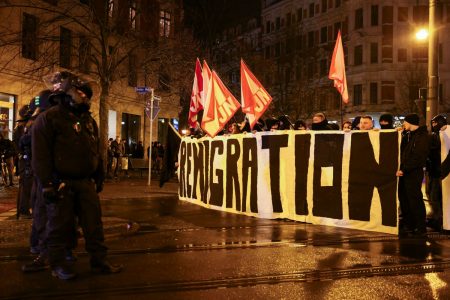Former French president Francois Hollande’s experience on the International stage is replete with stories. From Putin to Obama or Tsipras, Hollande recorded his memories, with what happened behind the cameras, in a book, which is already a bestseller in France. The former French president spoke exclusively to “TA NEA” newspaper.
Mr. President, in your latest book, Upheavals, you refer to Turkish President Recep Tayyip Erdogan and describe him as a contradictory personality. Why?
Because Turkish President Erdogan has it all. He is a member of NATO and therefore “passes” as an ally of the Europeans and the US and on the other hand he associates with Vladimir Putin, for good or bad reasons. Good reasons when it comes to grain supplies, bad reasons when he wants to appear as a possible mediator for an agreement to end the war, which Ukrainians today cannot accept. This contradiction must, one way or another, be resolved.
Can this characteristic of his personality worsen Greek-Turkish relations?
NATO should consider this issue an internal problem. That is, we cannot leave two Alliance member countries in confrontation and at risk of explosion if things get worse. It is important that everything is done so that there is no other way than dialogue and negotiation.
You say that lying is second nature to Putin. Is Erdogan like that too? Do you think that what Putin is doing in Ukraine, Erdogan can do in Greece?
No. Erdogan knows very well that any attack against an Alliance member country would entail a significant risk of being excluded, not only from NATO, but also from all discussions in Europe, because he too wanted to be a member of the European political community. So he is in a position to and knows his limits.
You are talking about the European Political Community. At the dinner in Prague, the Turkish president left after a response from the Greek Prime Minister. Does the European Union have a sufficiently active role in this whole issue?
However, it has a role to play. Because Turkey is still a candidate for EU membership, even though negotiations have stalled and membership prospects are unrealistic. There are also elections in a year in Turkey and everyone knows that we have to be extremely careful about the conditions under which these elections will be held.
Let’s go back to Russia and the war. You were well aware of these tensions since 2014, when you had the Crimea file in your hands. Do you think that the war in Ukraine will drag on for a long time?
Yes, the conflict will continue for several more months. First, because military operations will be curtailed in the run-up to winter, which prevents major troop movements. However, the bombing will continue. Surely at the end of winter the conflict will take a new form. A solution can be found, once a balance of power is achieved, especially on the Ukrainian side.
If you were at the helm of France today, how would you act?
It’s always easy to say what we should have done, but I think there were enough signals before the intervention. It was clear that Russia was ready to bend the rules and violate international law. Letting Putin act in Syria, maneuver in Libya, or watch Wagner commandos destabilize West Africa, should undoubtedly prompt more condemnation, vigilance, and sanctions.
The 2015 referendum: “Critical moments for Europe, not only for Greece”
Let’s go back to Greece. In your book you talk about the referendum of July 5, 2015 in Greece. Did you really say that night to Alexis Tsipras “you won but Greece lost”?
Yes. These were critical moments for Europe, not only for Greece. If there was an exit of Greece from the eurozone, this rupture would not only be a tragedy for Greece, but it would also signal the dissolution of the eurozone, its disintegration. Out of friendship for Greece, but also for the cohesion of the eurozone, we had to make an effort.
I must acknowledge that Alexis Tsipras has done a lot of work to achieve the agreement that allows Greece today, despite the difficulties, to borrow from the markets and be financed. Today, Greece may not be completely out of trouble, but its fate is and will forever be in Europe.
“Turkey uses refugees to pressure Europeans”
For the photo of naked refugees on the Greek-Turkish border that was made public by the Greek authorities. You know Immigration well. Mr. President, what are the obstacles to a genuine European immigration policy?
First of all yes, there is an assault on human dignity to put men in this situation, denuded, in all semblances of that word, no clothes, no hopes, no rights. It is insufferable.
Europe needs to control immigration more effectively. Finally, Turkey has, at very different times, used refugees to put pressure on the Europeans while receiving credits for hosting refugees at home. Again here things need to be put in order.


